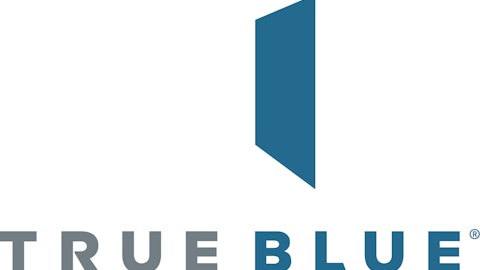Keryx Biopharmaceuticals (NASDAQ:KERX) was in 6 hedge funds’ portfolio at the end of December. KERX investors should pay attention to a decrease in support from the world’s most elite money managers of late. There were 7 hedge funds in our database with KERX positions at the end of the previous quarter.
In the 21st century investor’s toolkit, there are a multitude of metrics investors can use to analyze their holdings. A duo of the most under-the-radar are hedge fund and insider trading interest. At Insider Monkey, our studies have shown that, historically, those who follow the top picks of the elite money managers can trounce the S&P 500 by a solid amount (see just how much).

Just as key, bullish insider trading activity is another way to break down the stock market universe. Just as you’d expect, there are lots of reasons for an insider to sell shares of his or her company, but only one, very clear reason why they would behave bullishly. Many academic studies have demonstrated the useful potential of this tactic if you understand what to do (learn more here).
With all of this in mind, we’re going to take a glance at the recent action encompassing Keryx Biopharmaceuticals (NASDAQ:KERX).
What does the smart money think about Keryx Biopharmaceuticals (NASDAQ:KERX)?
Heading into 2013, a total of 6 of the hedge funds we track held long positions in this stock, a change of -14% from the third quarter. With hedgies’ capital changing hands, there exists a few key hedge fund managers who were boosting their stakes significantly.
According to our comprehensive database, Joseph Edelman’s Perceptive Advisors had the largest position in Keryx Biopharmaceuticals (NASDAQ:KERX), worth close to $3 million, accounting for 0.5% of its total 13F portfolio. Coming in second is Israel Englander of Millennium Management, with a $0.7 million position; less than 0.1%% of its 13F portfolio is allocated to the company. Other hedge funds that hold long positions include D. E. Shaw’s D E Shaw, and Cliff Asness’s AQR Capital Management.
Since Keryx Biopharmaceuticals (NASDAQ:KERX) has faced falling interest from the aggregate hedge fund industry, we can see that there were a few hedge funds that slashed their positions entirely at the end of the year. Intriguingly, John Burbank’s Passport Capital cut the largest position of the “upper crust” of funds we monitor, worth about $1.4 million in stock.. Chuck Royce’s fund, Royce & Associates, also cut its stock, about $0.7 million worth. These bearish behaviors are intriguing to say the least, as total hedge fund interest fell by 1 funds at the end of the year.
How are insiders trading Keryx Biopharmaceuticals (NASDAQ:KERX)?
Insider buying is most useful when the company in question has experienced transactions within the past 180 days. Over the last half-year time period, Keryx Biopharmaceuticals (NASDAQ:KERX) has seen zero unique insiders purchasing, and 2 insider sales (see the details of insider trades here).
Let’s also take a look at hedge fund and insider activity in other stocks similar to Keryx Biopharmaceuticals (NASDAQ:KERX). These stocks are Astex Pharmaceuticals, Inc. (NASDAQ:ASTX), Kythera Biopharmaceuticals Inc (NASDAQ:KYTH), Endocyte, Inc. (NASDAQ:ECYT), Intercept Pharmaceuticals Inc (NASDAQ:ICPT), and Rigel Pharmaceuticals, Inc. (NASDAQ:RIGL). This group of stocks are in the drug manufacturers – major industry and their market caps resemble KERX’s market cap.
| Company Name | # of Hedge Funds | # of Insiders Buying | # of Insiders Selling |
| Astex Pharmaceuticals, Inc. (NASDAQ:ASTX) | 9 | 0 | 3 |
| Kythera Biopharmaceuticals Inc (NASDAQ:KYTH) | 8 | 0 | 0 |
| Endocyte, Inc. (NASDAQ:ECYT) | 7 | 1 | 3 |
| Intercept Pharmaceuticals Inc (NASDAQ:ICPT) | 6 | 3 | 0 |
| Rigel Pharmaceuticals, Inc. (NASDAQ:RIGL) | 15 | 0 | 0 |
With the returns exhibited by the aforementioned tactics, retail investors should always monitor hedge fund and insider trading sentiment, and Keryx Biopharmaceuticals (NASDAQ:KERX) is no exception.




